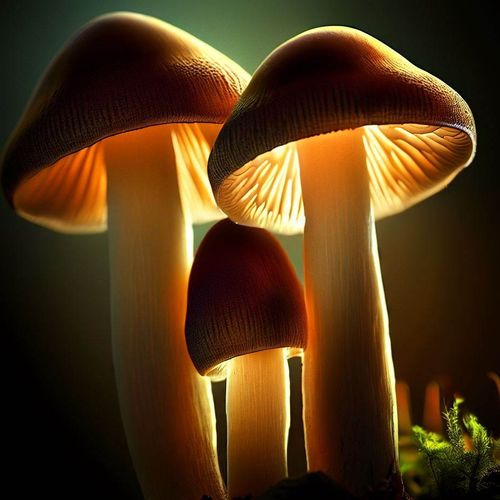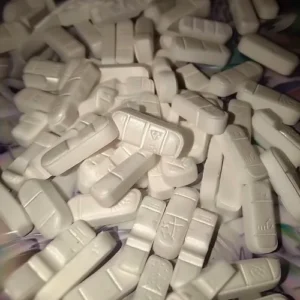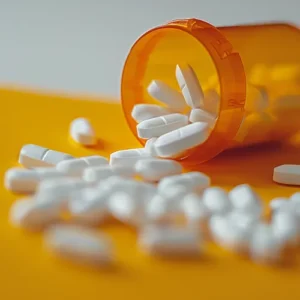Magic mushrooms, also known as shrooms, refers to any of a number of mushrooms that cause hallucinations and other psychedelic effects. The most common variety of mushroom used is psilocybe semilanceata, commonly referred to as the liberty cap mushroom.
Magic mushrooms vary in strength and toxicity. The ‘fly agaric’ or amanita muscaria mushroom is significantly stronger than the more common liberty cap mushroom.
Magic mushrooms can be eaten raw, or can be dried out for storage. Fly agaric mushrooms are more often dried, as the raw mushroom can make the user quite ill and the risk of poisoning, even death, is higher with this variety. Some people like to drink a tea made of the dried mushrooms. Drying the mushrooms reduces their weight, though the strength is unchanged.
What do they look like?
Magic mushrooms look much like many other varieties of mushroom that has been dried.
How are they used?
Dried magic mushrooms can be eaten or brewed into a tea. Raw mushrooms can be eaten as they are or cooked into food.
Short-term Effects of Magic Mushrooms
Using magic mushrooms causes a ‘trip’ which is milder than that caused by LSD, and usually lasts about four hours. Magic mushroom are very relaxing and users typically laugh a lot. Some varieties of magic mushroom may cause stomach ache, nausea, or diarrhoea. Because magic mushrooms resemble some poisonous varieties of mushrooms, taking one of these poisonous mushrooms can make users very sick, and can even be fatal.
Users who are anxious or depressed before they start using magic mushrooms are more likely to experience a bad trip. These experiences can be scary and, once started, cannot be stopped.
Long-term Effects of Magic Mushrooms
Although many individuals use magic mushrooms for therapeutic reasons, there is still a need for caution. Psilocybin is a powerful substance that can cause changes in perception and affect mood for an extended period. Studies have shown that the use of psilocybin can lead to a change in brain connectivity, which can last for up to a year after use.
Another concern about the long-term effects of magic mushrooms is the potential for addiction. While psilocybin is not physically addictive, some individuals may become psychologically dependent on the substance. This can lead to a compulsion to use magic mushrooms, which can have a detrimental effect on mental health.
There is also evidence to suggest that the use of magic mushrooms can lead to changes in personality. Research has indicated that individuals who use psilocybin may become more open to new experiences and ideas. While this may be seen as a positive effect, it can also be associated with negative outcomes such as increased risk-taking behaviour.
The long-term effects of magic mushrooms on mental health are also a concern. While psilocybin has been shown to have therapeutic benefits for conditions such as depression and anxiety, it can also exacerbate existing mental health issues. Individuals with a history of mental health issues should be cautious when using psilocybin and seek professional guidance.
Magic Mushrooms and the Law
Magic mushrooms have been used by humans for centuries for their hallucinogenic effects and are still one of the most commonly used drugs in the UK. They contain the active ingredient, psilocybin, which alters the user’s perception and can evoke mystical or spiritual experiences. However, the possession, sale, and use of magic mushrooms are illegal in the UK under the Misuse of Drugs Act 1971. They are a Class A drug.
Despite their illegality, magic mushrooms are still widely used and sold in the UK. They can be found in various forms, such as fresh or dried, and can be eaten, brewed in tea, or mixed with other substances. The laws surrounding their use and possession are often murky and unclear, leading to confusion among users and authorities alike.
In 2005, the legality of magic mushrooms in the UK was challenged when a group called the “Friends of the Mushroom” argued that psilocybin was a natural substance and should not be illegal. The case was heard in court, but ultimately the judge ruled that magic mushrooms were indeed illegal under the Misuse of Drugs Act.
However, there have been some recent developments in the UK regarding magic mushrooms. In 2018, researchers from Imperial College London conducted a clinical trial of psilocybin as a treatment for depression. The results were promising, showing significant improvements in mood among participants. This has led some to call for a reassessment of the legality of magic mushrooms for therapeutic purposes.
Additionally, there is a growing movement of people who advocate for the decriminalisation of magic mushrooms. They argue that criminalising the substance only leads to unsafe and unregulated use, and a more progressive approach towards drug policy is needed.
Until there is a change in the law, it is important for individuals to understand the risks associated with using magic mushrooms. They can have adverse effects on mental health, especially for those with underlying conditions. Additionally, because their potency and effects vary widely, it is difficult to accurately dose them, which can lead to unpredictable outcomes.
In conclusion, magic mushrooms remain illegal in the UK, despite some recent developments in research and advocacy. Individuals should approach their use with caution and seek professional guidance if they are considering using them for therapeutic purposes. As with any drug, it is imperative to prioritise safety and be aware of the potential consequences.
Photo Credit: Zoom Testing
Zoom Testing is a leading UK drug testing company and a supplier of Drug Test Kits.
This post was originally published in January 2014 and has been updated since.





